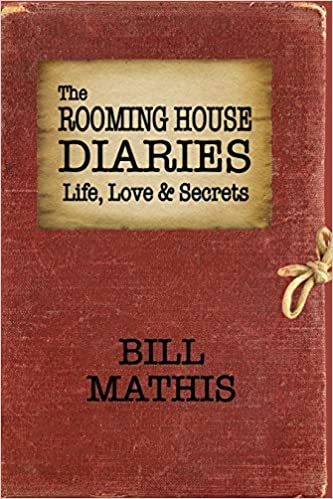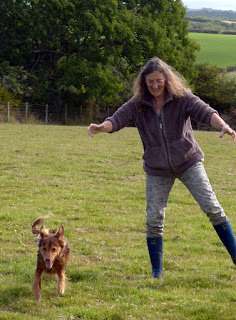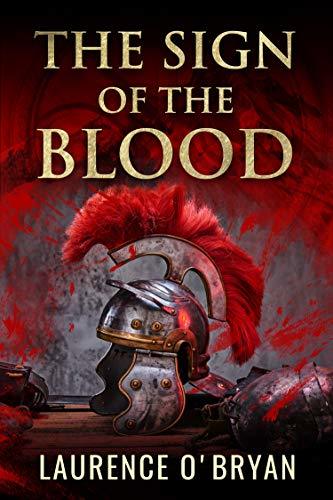Mary Anne Yarde's Blog: The Coffee Pot Book Club , page 74
August 26, 2020
Historical Fiction author, J. A. Ironside, is sharing an excerpt from her fabulous book — Revolt (The King’s Knight Book 1) @J_AnneIronside

Revolt
The King’s Knight Book 1
By J. A. Ironside

1381.
England seethes with discontent over unfair and arbitrary taxation.
The country is on the cusp of an uprising - a peasant's revolt. All it will take is a spark.
Gregory Maudesley, second son of a minor noble and disillusioned knight for hire, returns home after nearly a decade abroad. Maudesley intends to claim his deceased father's lands but the knight is plagued by misfortune.
Gregory journeys to London to secure an audience with the boy king, Richard II. But the England he travels through is very different from that of his youth. The road is treacherous and the greatest dangers of all await him in the capital.
The city is ablaze. Even the Tower of London has fallen to Wat Tyler's forces.
But Richard, enlisting Gregory’s help, will ride out to meet the rebellion head on.
A king and kingdom must stand, or fall.
Revolt is the first book is The King's Knight series of novellas, chronicling the life of Gregory Maudesley and the dramatic reign of Richard II.
Excerpt
Gregory listened to the list of his new beloved’s virtues wearing a stony expression. He remembered Baron de Gilbert from his boyhood and thought he’d never seen the old patrician look so sheepish. The baron clearly knew he was offering shoddy goods.
Whatever was wrong with this Alienor of the Marches, it had been enough to prevent any other matrimonial nibbles. Perhaps no one else was quite desperate enough to marry a Scot.
In the face of Gregory’s noticeable lack of enthusiasm, Baron de Gilbert trailed off.
“If the lady is half as attractive and accomplished as you say, I wonder that you’ve not suggested one of your own sons should marry her,” Gregory said. “Giles is still without a wife, is he not?”
The baron’s pleasant expression stiffened. “Alienor is my sister’s daughter, Sir Maudesley. Far too close a relation for the laws of consanguinity to permit.”
“Still, it does seem strange that the lady has not met with a suitable match, neither here nor in her father’s lands.”
The baron gave Gregory a sour look. “You’ve already heard of my niece’s indiscretion.”
Gregory allowed the silence to stretch out taut and uncomfortable. He knew damn well he had to marry the girl but he wanted the truth first. And there was no reason for de Gilbert to think him eager, or more accurately, desperate.
“My brother-in-law allowed Alienor to run somewhat wild, I think. And then…recently…she was found…with a man…”
“Not one she could marry, then.” Gregory’s tone was business-like but the words tasted sour.
“We don’t know who the devil was,” the baron said, with a flash of temper. “The wretched girl won’t tell us.”
“As long as he’s not likely to turn up in a few months’ time demanding his wife,” Gregory said morosely. He supposed from a practical point of view it didn’t matter. Or it wouldn’t matter if everyone in the surrounding area didn’t already know.
“No, of course not,” De Gilbert said hastily.
Gregory imagined being mocked by villein and lord alike for taking a soiled petticoat to wife. A new thought struck him like a crossbow quarrel.
“This haste to see the lady wed is from fear of retribution from your powerful brother-in-law?” Gregory’s jaw clenched. “Or that her indiscretion will be compounded by an addition to the family in the near future?”
Baron de Gilbert met his gaze squarely. “Does is matter, Maudesley?”
Gregory started at hearing his father’s friend address him as if he were speaking to the old baronet.
De Gilbert’s eyes grew hard. “As I understand matters, it has been several years of poor harvest for your estate. With inheritance duty, I imagine you are in want of coin.”
Gregory glowered at the older man.
The baron sat back and poured more ale into his mug. “My niece has a considerable dowry, for the right suitor. One of good family with the right name. I am prepared to be generous.”
“How generous?” Gregory grated the words out past his locked teeth.
“Quite generous,” De Gilbert said. “It would seem we might solve each other’s problems admirably.”
Gregory was glad the baron could not know of his brother’s debts or doubtless ‘quite generous’ would have become ‘slightly generous’. “We have an agreement then, providing your niece agrees.”
A troubled expression crossed de Gilbert’s face before he schooled it to politeness once more. “She will see what a fine opportunity it is.” He rose from his chair. Gregory stood likewise but the baron waved him back into his seat. “No, no. I’ll just…see what’s keeping her.”
He shut the door so firmly that it bounced partway open again, leaving Gregory to wonder why a man with a perfectly functioning household should feel compelled to fetch his wayward niece himself.
Some minutes later, the hasty patter of footsteps accompanied by a heavier tread came from the corridor.
“I see I have no choice but to meet him,” a young woman’s voice said bitterly. “But I will promise no more than that.”
Gregory knew it was ill-done to eavesdrop but the woman’s voice caught his attention. It softened words, rolling ‘R’s, lengthening ‘L’s and broadening vowels as it lilted. It took him a moment to understand the words. His ear was not trained for a March accent, which was more than halfway to lowland Scottish.
“Alienor, in the name of God, you must see reason. Eligible suitors do not simply drop out of the sky,” Baron de Gilbert said, in exasperation.
“This one has. Perhaps if you call on the Almighty again, He’ll send a few more.” There was disdain in every syllable. “Much good it may do you if He does, for I’ll not agree to marry any of them.”
“Alienor−”
“It’s bad enough you’ll not credit me with telling the truth, but you’d have me take as my husband any man who can bear arms!” There was a rhythmic pattern of steps and a faint swishing noise. To and fro. Back and forth. Lady Alienor was pacing in the corridor. “William Maudesley was a brute and I’ve heard nothing to say the brother is any better!”
Gregory stopped pretending that he wasn’t listening with great interest.
“You’ve heard nothing of him at all.” De Gilbert sounded as if he had run to the end of his patience. “He’s been away these ten years. There cannot be a score of people left alive who even remember him. See sense, Niece, I pray you.”
There was a moment’s unbroken silence.
“You cannot stay here forever,” de Gilbert went on. “Your father expects you to marry from here or to return home and find a husband there. Your indiscretion−”
“It’s as much to your advantage as to mine that Laird Douglas hears nothing of my indiscretion, as you call it.”
“That’s as maybe, but how long do you suppose it will be before word does reach his ears? You may dislike my methods, Niece, but how do they compare to your father’s?”
A pause as the lady considered the implication of these words. “Very well. I suppose you’d better present me to this ‘suitable candidate’.”
Gregory turned to see a tall, dark haired young woman stride through the door. He rose and bowed, straightening to see chagrin pink her cheeks as she dipped a bow in return. She wasn’t completely immune to propriety then, for all that she was from the Marches and had besmirched her virtue.
Gregory supposed she was pleasant enough to look upon. Rather lovely, in fact. He found himself the subject of her cool, assessing gaze and heat climbed the back of his neck, knowing what she saw. Or rather what she didn’t see, since he conspicuously lacked any sign of great wealth, refinement or personal attraction. If the lady hoped for a true hearted knight from a ballad, she was likely to be disappointed. Not that it should matter. She should be grateful he was making an offer. From the still, cold expression she wore, he didn’t think that gratitude would be forthcoming anytime soon.
Fletcher had cautioned him on how to address a delicately reared young maiden, but he couldn’t imagine honeyed words winning the day here. If the girl was beautiful, it was the sort of beauty a kestrel might possess – one not easily tamed or caged, and always entirely predatory.
“My niece, Alienor,” de Gilbert said to Gregory, somewhat redundantly. “Alienor, my dear, this is Sir Gregory Maudesley…Baronet Maudesley now, I should say.”
“Lady,” Gregory dipped his head slightly, not seeing the point in bowing again when he’d just done so.
“My lord,” Alienor said. “I would like to say it is a pleasure but you’ll find me distressingly honest in all things.” She shot a glance at her guardian, who shut his eyes and supressed a groan. Her gaze returned to Gregory’s, full of undeclared challenge.
“Alienor,” de Gilbert hissed through his teeth.
“All’s well, my lord.” Gregory was completely freed from his previous embarrassment, at liberty to speak his mind now that the lady had been so thoroughly rude. “I don’t especially require sweet words from a wife. If I want a woman to talk in such a manner, I’ll pay a professional.”
“Maudesley!” de Gilbert snapped.
Gregory watched Alienor’s expression. She didn’t blush or pale. The only change was that the little frown scribbled between her fine, dark brows eased as they rose in surprise. The corner of her mouth twitched and for a moment Gregory could have sworn she wanted to laugh. If he had expected to embarrass her or shame her into silence, it hadn’t worked.
“What do you require from a wife, then, if I may be so bold?” Alienor said.
Once again, Gregory was caught by the lilting quality of her voice which concealed the sharp edges of her words like hidden blades. “What any man requires of a wife.” Seeing that answer did not satisfy her, he expanded on the subject. “A well run household, children if God wills it.”
Alienor smiled, the expression so sweet and deadly, Gregory fought not to step back. “And does it trouble you that you would not be marrying a virtuous, young maiden but one who has stained her reputation? That’s a thorn to the pride, isn’t it?”
“Yes,” Gregory said, thinking there was no point dissembling. “But not enough to deter me.”
Alienor’s eyebrows lifted again.
“It need not be an insurmountable barrier,” he went on, fumbling for words that were true even if he did find it distasteful.
Alienor’s expression was equal parts scorn and curiosity. “I believe you mean that.”
“I’ll not have any lovers turning up on my lands, mind. Past or future.”
“Oh you’ve made your position very clear,” Alienor’s tone dripped more of that deadly sweetness.
Gregory wondered if this might not be a huge mistake. She was strongly giving him the impression that she might cut his throat while he slept. In fact, he thought eyeing her surreptitiously, she might well wait as long as it took for my guard to go down. Years if need be, and then stick a dagger under my ear.
“Humour me and answer a question,” Alienor said.
“Very well.” Gregory tried to ignore the way de Gilbert was violently shaking his head.
“Are you wanting to marry me or is it my dowry you’re marrying?” Alienor said.
A small voice at the back of Gregory’s head, which sounded disturbingly like Fletcher, begged him to say something flattering and meaningless. But Gregory found he couldn’t do it. Well aware that he was ruining his chance to marry his way out of disaster, he answered truthfully.
“The dowry is the greater attraction, Lady.” He thought about adding a few words to say that any man would be glad to have such an intelligent, beautiful, witty… No, he could not do it. “But you would be accorded every respect and honour due to you as my wife, regardless of how or why, or...or anything which came before.”
Baron de Gilbert threw his hands up as if to say he was done with the whole business.
Alienor cast a measuring glance over Gregory, leaving him in no doubt that she was not especially pleased by what she saw. “He’ll do. Arrange the wedding as you see fit, Uncle.”
Gregory couldn’t make sense of her words for a moment. He’d been thinking about how to exit with some dignity intact. But she had agreed to marry him. He could raise the inheritance fee. “Lady?”
Alienor gave him a look that said all too plainly that she hoped he wasn’t this stupid all the time. “We’ll be wed. That is what you want, is it not?”
“Er...yes... That is...”
“Very well then. I’ll see you at the wedding, Sir Maudesley.” She exited the room as briskly as she’d entered it, leaving her confused suitor and stunned guardian behind her.
Pick up your copy of
Revolt
Add Revolt to your ‘to-read’ list on

J. A. Ironside

J. A. Ironside (Jules) grew up in a house full of books in rural Dorset. Which probably explains why she starts to climb the walls if she doesn’t get through at least three books a week.
She writes historical fiction – with a strong leaning towards the medieval era, as well as sci-fi and fantasy. Her preference is for genres that allow her to put her characters in impossible situations so she can then watch them try to wriggle their way out.
Jules is a keen martial artist who has studied and taught for over twenty-five years. She has a particular fondness for medieval weaponry. She now lives in Gloucestershire, on the edge of the Cotswold way.
Connect with Jules:
Website • Twitter • Goodreads.
Check out Clare Flynn's fabulous book — The Pearl of Penang #HistoricalFiction #GreatReads @clarefly

The Pearl of Penang
By Clare Flynn

Winner of the 2020 BookBrunch Selfies Award for Adult Fiction.
"Following the death of my wife, I am in need of support and companionship. I am prepared to make you an offer of marriage."
Evie Fraser, paid companion to a crotchety spinster, seems destined for a lonely life. Then out of the blue, a marriage proposal arrives by post. She met the handsome Douglas Barrington just once – at his wedding – but never forgot him. Now widowed, plantation-owner Douglas offers her a new life on the lush, exotic island of Penang. How can Evie resist?
But what are Barrington’s motives in marrying Evie when he barely knows her, and why is he so hostile and moody?
Evie soon finds herself pitched against Douglas on the one hand and the shallow, often spiteful world of the expatriate British on the other. Has she made the biggest mistake of her life?
Flynn’s tenth novel explores love, marriage, the impact of war and the challenges of displacement – this time in a tropical paradise as the threat of the Japanese empire looms closer.
Pick up your copy of
The Pearl of Penang
Add The Pearl of Penang to your ‘to-read’list on

Clare Flynn

Clare Flynn is the author of eleven historical novels and a collection of short stories. A former International Marketing Director and strategic management consultant, she is now a full-time writer.
Having lived and worked in London, Paris, Brussels, Milan and Sydney, home is now on the coast, in Sussex, England, where she can watch the sea from her windows. An avid traveler, her books are often set in exotic locations.
Clare is a Fellow of the Royal Society of Arts, a member of The Society of Authors, Novelists Inc (NINC), ALLi, the Historical Novel Society and the Romantic Novelists Association. When not writing, she loves to read, quilt, paint and play the piano. She continues to travel as widely and as far as possible all over the world.
Connect with Clare:
Website • Twitter • Facebook • Amazon Author Page • Goodreads.
Have a sneak-peek between the covers of Jenny Knipfer's fabulous book — Silver Moon (By the Light of the Moon Book 3) #HistoricalFiction @JennyKnipfer

Silver Moon
(By the Light of the Moon Book 3)
By Jenny Knipfer

Silver Moon, the third book in the series: By the Light of the Moon, paints a stunning and poignant picture of life on the home front in Webaashi Bay, Ontario, and of three men who are a part of the Canadian Expeditionary Force during WWI.
Shamed into joining the war, the tide turns for Luis Wilson when he is steered into the depths of espionage. Injured and presumed missing, will he lose his heart to the very woman who presented him with a white feather?
Oshki and Jimmy offer a grim perspective on life in the trenches. They despair of ever returning home to the women who hold their hearts.
Meanwhile, Lily fights for the cause in her own way and rallies the female troops at home as prejudices run high and the local cafe owner is accused of being a spy.
Will the women of Webaashi Bay receive their men back unscathed? Can the power of love win out over insurmountable odds? All this drama and more plays out under the light of a silver moon.
Fans of WWI historical fiction, Christian historical fiction, and literary fiction will find Silver Moon a moving, powerful read!
Excerpt
Prologue
Vimy Ridge, France
The wee hours of April 9th, 1917
The door between death and life is so thin. I could melt into the passageway as easily as floating on water. It is a place just one step away from drowning. I could be buoyant and breathing one minute, then not. Death's door becoming a fluid birth.
Will they find me and the intelligence stowed away in my shoe before I die? Will I die before I can make a break for freedom? Death resembles a sort of freedom, I suppose, one I find almost welcoming. My mind tells me it would be easy to surrender to the pull of the mud and the slimy, icy water, but my body won’t let me. It struggles to survive.
My lungs suck in quick gasps of air through a copper tube as I stay covered in my watery grave, but I need more. Soon, I will need to breathe, really breathe, for I am starving for oxygen. Unless I die of hypothermia first. Perhaps the mud acts as an insulating layer.
Should I listen and give in to death’s call?
Maybe, for I don’t even know who I am anymore. The man I used to be haunts me and grieves me with accusations. I am a killer. I am a liar. I am a cheater. I’m worse than my father ever was.
Does war really give us a bill of rights to become such things?
Maybe death would erase the wrongs I have done and the atrocities I have seen, the images of men blown to bits before my very eyes, their visceral remains flecked upon my face like macabre confetti. Skewered, bayoneted bodies pile up in my memory like stuck pigs ready for the
roasting. We are all preparing to be roasted, for the way of mankind has delved into the depths of hell. Here, I rest in this muddy trench, a narrow sea of mud, water, rats—the living and the dead.
Just let go. It’ll be easy . . .
The thought reverberates in my tired soul. But I can’t. An image of myself as a boy flashes before me—hanging off the cliff at home by the distant shores of Superior. My fingers grip the dirt and rocks again as if it were yesterday and not twenty years ago. In the vision, my feet slip, and I am a fall away from death’s embrace, but Someone intervenes. My soul now cries as that boy once cried.
“Help me! Save me!”
I open my eyes and see by the light of the silver moon—a face, smeared like a dark, watercolor painting through the water. I see a shadow pass before the moon, and before I know what is happening, I feel a tug. I am pulled from the black embrace which called me to release, and I break the plane of the frigid, murky water at the bottom of the trench, wondering who has me in their grasp.
“Luis? Luis!” a voice fiercely whispers, inches from my face.
He looks like . . . Oshki?
Am I dreaming? How can this be? My ragged lungs take a deep surge
of air as I spit out the thin, metal pipe which has kept me alive for the last . . . how long has it been? Hours? Minutes? I can’t be sure. I shake and shiver in the night air.
Oshki, my young friend. He represents home, hope, and everything good. But I am not of that world anymore. I have been sculpted by darkness.
“O-sh-ki?” I finally sputter out. The tremors of my body make my voice rattle in my chest.
He pulls me into a standing position. The water sloshes around us like a simpering witch’s cauldron. We stand thigh-deep in the lifeless dirge of the trench. I must look like a frightened fool to him. My eyes focus only on his.
We are in an outlying spot that is supposed to be occupied but has recently become flooded. I hoped they wouldn’t think to look for me in this deserted portion of Pan’s labyrinth, and I certainly didn’t think my own countrymen would find me.
“You’re safe, Luis. There are no Krauts here. But how did you . . .?” Oshki’s hands grip the lapels of my uniform.
I want to believe he’s real. I do. But the mind plays funny tricks in the darkness.
I focus on nothing but him. “How did you know I was here?”
“A fella named Rooster told us, a German turncoat. He escaped and mentioned an escaped prisoner with him. We were told to investigate, and what do I find?” Oshki slaps me on the back with a splat. “You are one crazy Canadian, my friend.”
Good. Rooster made it. I hope he hasn’t told Oshki too much. Besides the major, he’s the only other person who knows the truth.
I glimpse the outline of another man at Oshki’s side, but I concentrate on my friend. He offers an explanation for their appearance.
“We were going out this way anyway cause Staff Sergeant Jenkins sent Lenny and me to gauge the state of the trenches at this end and if they are passable or not.” He pauses and looks deeper into my eyes. I avert my gaze and busy myself with wringing some water from my drenched clothes.
“Why were you acting like a sewer rat?” he asks.
“I got a bit lost in the dark is all, and I thought I’d attract too much attention sloshing around. They were close on my tail.” I stand up straighter and back away from him a bit, hoping he doesn’t notice my German military jacket. Oshki doesn’t know who I really am or what my position really is. He just knew of my recent placement as a lieutenant with the Allied ground forces near here. The men were told I was captured.
“Well, lucky for you they moved on a while ago.” He points to the hands of the serviceman waiting to lift me up out of the place I thought would be my grave. “Come. We’ve got to get ya warm, but stay low.” He moves ahead, but suddenly he turns and looks at me incredulously.
“I still can’t believe you’re alive and . . . free.”
I am reminded of my prayer. “I had a little help, it seems.”
Oshki grins at me in the silver light and thumps me affectionately
on the back. He’s shorter than me but stronger. I try to grin back to hide who I’ve become. But war has changed us all irrevocably—even he looks older to me.
He says nothing, but I catch his eyes searching me to the core. He must sense more to my story. The spirit of an Ojibwe wise man rests in this young man. Even though his eyes shine hazel, they remind me of the knowing, black eyes of his aunt, Maang-ikwe. Eyes which can see every part of you. It makes me want to hide again. But, no, I must be brave.
Brave. I have been brave for years. I am tired of being brave.
But I choke down my fatigue and force myself to move. It is what I do, because I am a soldier and . . .
I am a spy.
Pick up your copy of
Silver Moon
Add Silver Moon to your ‘to-read’ list on

Jenny Knipfer

Jenny lives in Wisconsin with her husband, Ken and their pet Yorkie, Ruby. She is also a mom and loves being a grandma. She enjoys many creative pursuits but finds writing the most fulfilling.
Jenny’s education background stems from psychology, music, and cultural missions. She spent many years as a librarian in a local public library but recently switched to using her skills as a floral designer in a retail flower shop. She is now retired from work due to disability.
Jenny’s books, Ruby Moon, Blue Moon, and Silver Moon earned five-star reviews from Reader’s Favorite, a book review and award contest company. Their praise: “Ruby Moon is entertaining, fast-paced, and features characters that are real. Blue Moon continues a well-written and highly engaging saga of family ties, betrayals, and heartaches… Silver Moon is a highly recommended read for fans of historical wartime fiction, powerful emotive drama, and excellent atmospheric writing”
She holds membership in the: Midwest Independent Booksellers Association, Historical Novel Society, Wisconsin Writers Association, Christian Indie Publishing Association, and Independent Book Publishers Association.
Jenny’s favorite place to relax is by the western shore of Lake Superior, where her novel series, By the Light of the Moon, is set.
She has self-published the first three books, Ruby Moon, Blue Moon, and Silver Moon, in her four-part series. One more novel to complete the series is planned for 2020. She is currently writing a new historical fiction series called, Sheltering Trees.
Connect with Jenny:
Website • Facebook • Twitter • Instagram • YouTube • Goodreads • BookBub
Check out Bill Mathis' fabulous book — The Rooming House Diaries - Life, Love & Secrets #HistoricalFiction #LGBTQ @billmathiswrit1

The Rooming House Diaries - Life, Love & Secrets By Bill Mathis

Six diaries and some correspondence are found in an old Chicago rooming house. The diaries span the 20th century. Written by the immigrants who built the place in 1887, their children and several roomers, they tell the stories of everyday people struggling, surviving and succeeding at life amidst the historical backdrop of World Wars I & II, the Great Depression, prejudice, demographic changes in the Back-of-the-Yards neighborhood, and epidemics, including AIDS. It's rich, deep, at times raw, yet shows the humanity, spirit and love of family, both blood related and non-DNA.
It's a novel of changing times and attitudes; family secrets covered up for over one hundred years; religious, ethnic and gender prejudice; the changes in Chicago, a neighborhood and our nation; the joys of diversity and the richness of our society, warts and all.
The Coffee Pot Book Club
★★★★★
Highly Recommended
Read the full review HERE!

Pick up your copy ofThe Rooming House DiariesAmazon UK • Amazon US
Bill Mathis
 Bill Mathis won the 2019 Pencraft Runner Up award for Family Fiction. Bill began writing after he retired from careers in YMCA camping and foster care. His books involve family, warts and all, usually some LGBTQ characters, diversity and non-DNA family. He resides in Beloit, Wisconsin and enjoys writing, reading, volunteering and traveling.
Bill Mathis won the 2019 Pencraft Runner Up award for Family Fiction. Bill began writing after he retired from careers in YMCA camping and foster care. His books involve family, warts and all, usually some LGBTQ characters, diversity and non-DNA family. He resides in Beloit, Wisconsin and enjoys writing, reading, volunteering and traveling.Connect with Bill: Website • Twitter • Facebook • Goodreads.
Welcome to Day #3 of the blog tour for The Smallest Crack by Roberta Kagan #HistoricalFiction #WWII @RobertaKagan @gwendalyn_books

The Smallest Crack
Book One of the Holocaust Story Series
By Roberta Kagan

1933 Berlin, Germany.
The son of a rebbe, Eli Kaetzel, and his beautiful but timid wife, Rebecca, find themselves in danger as Hitler rises to power. Eli knows that their only chance for survival may lie in the hands of Gretchen, a spirited Aryan girl. However, the forbidden and dangerous friendship between Eli and Gretchen has been a secret until now. Because, for Eli, if it is discovered that he has been keeping company with a woman other than his wife it will bring shame to him and his family. For Gretchen her friendship with a Jew is forbidden by law and could cost her, her life.
Today we are stopping over on
Gwendalyn's Books for a sneak-
peek between the covers of The Smallest
Crack.
Click HERE!

Welcome to Day #2 of the blog tour for Drake: Tudor Corsair #HistoricalFiction #SirFrancisDrake #CoffeePotBookClub @tonyriches @cameyrick1

Drake - Tudor Corsair
(The Elizabethan Series Book 1)
By Tony Riches

1564
Devon sailor Francis Drake sets out on a journey of adventure.
Drake learns of routes used to transport Spanish silver and gold, and risks his life in an audacious plan to steal a fortune.
Queen Elizabeth is intrigued by Drake and secretly encourages his piracy. Her unlikely champion becomes a national hero, sailing around the world in the Golden Hind and attacking the Spanish fleet.
King Philip of Spain has enough of Drake’s plunder and orders an armada to threaten the future of England.
The first stop of our tour is over on Catherine Meyrick's Official Blog.
Click HERE!
August 25, 2020
Check out Rebecca Bryn's fabulous #NewRelease — The Chainmakers’ Daughter #HistoricalFiction @RebeccaBryn1

The Chainmakers’ Daughter
By Rebecca Bryn

“Some make chains. Some wear them.”
Rosie Wallace survives on three slices of bread a day. Scarred by flame and metal, she makes her life as her ancestors have: making chains for their rich chain master. There is no hope for a better future. No hope even for a green vegetable on the table. Her life will be making chains, marrying her sweetheart, Jack, and babies every year.
When an assault threatens the very fabric of her tenuous existence, Rosie finds the courage and the reason to fight for her life and the lives of her family and neighbours.
Set in the first decade of the 20th century, The Chainmakers’ Daughter is a haunting portrayal of abject poverty, ever-present death, and modern-day slavery.
Praise for The Chainmakers’ Daughter
‘Rebecca Bryn’s The Chainmakers’ Daughter is not only the most vivid and haunting portrayal of the 20th century struggle for workers and women’s rights but it is also timely and a mirror to our own modern struggles. Bryn’s novel is to be lauded for its attention to historical detail and its sharp depiction of true and crippling poverty but it is first and foremost a love story. Rosie Wallace is a woman both out of time and very much in time. Bryn has managed to produce a heroine that is recognizable as a feminist to modern readers and yet not a unicorn to the early 1900s. The Chainmakers’ Daughter is quite simply one of the most compelling and haunting works I have read in years. Characters, vices, and even steel comes alive under Bryn’s fingers and the chain of love she creates is nothing short of miraculous.’
Rachael Wright author of Captain Savva series.
Excerpt
‘When you’re accustomed to privilege, equality feels like oppression.’ – Franklin Leonard
Hawley Heath, England 1901:
Rosie Wallace threw aside childhood as lightly as she threw aside her thin blanket. She sat up eager to begin, for once she’d done the chores, she would work alongside her mother in her chain workshop. She pressed her fingers against her stomach to stop the rumbling; her hunger to help Mom earn a better wage by forging more chain was only exceeded by the emptiness in her belly.
The ever-present crash of iron on iron sounded again, slowly at first, as if the arm that wielded the hammer was too tired for the task. It fell into a regular, familiar, determined rhythm soon taken up by other hands in the chain-shop brew houses across the cinder yard, and together they composed a discordant melody.
She peered into the half-light; the iron-framed bed where her parents slept was empty, and a rosy light crept beneath the urden, the hessian sack that served for a curtain. Not the cool fingers of an early dawn but the fiery glow of the forges spilling through the open doors of the workshops.
Half rolling from her bed on the floor, so she didn’t disturb her sisters, she lifted the urden sacking and peered out. It was still half-dark, the hipped roofs of the cluster of hovels silhouetted black against a pre-dawn sky, but already, three hearths were glowing. Smoke from their chimneys, and the chimneys of the blast furnaces beyond, devoured the paling stars.
The clock downstairs chimed three; she was proud of the timepiece, few families had one, but it was relentless in its daily insistence for her to get out of bed. It was past time she was up and out. Mom had let her sleep in on her first morning after leaving school and had gone alone to light the hearth and begin the day’s work.
She lit the oil lamp by the side of her parents’ bed and threw on her clothes: small clothes that were a dingy grey no matter how often she washed them, and over those, a long dress that was tattered at the cuffs and hem and peppered with burn holes. She tied on her urden apron with a length of twine and pulling on a pair of stockings and boots contemplated the day ahead.
First, washing and hanging out what spare clothes they possessed, then a little bread and tea for breakfast, get her younger sisters up, fetch a basket of glede, the small coke needed to fuel the forge, and help Mom in the workshop while keeping an eye on the babies of the family.
At ten years old, she’d already learned enough about chores and hammering chain to make a difference to Mom’s working day. She’d loved school and Miss Croft, her teacher, but now she’d left, she could do her bit to help Mom feed the family.
Her little sisters dreamt on as she padded down the stairs and into the wash-house where the day’s laundry awaited her. She sang to herself as she drew water from the well, laid the fire for the copper, and lit it. She sorted the clothes: whites – if you could call them white – first and then the darker work-stained garments.
It being summer, and light early, Dad had already left for the factory where he forged the larger chain; the ‘olivers’, the massive hammers required to fire weld the links made from thicker iron rods, were too heavy for the women to use. Her two older brothers, Tom and Joe, were apprentices there and had gone with him. It would be too hot later for such hard work, so going in early while it was cooler made sense.
While the water heated in the copper, she collected the children’s stockings and undergarments. If she was quick, she could get them washed and dried before they wanted to wear them. Aggie’s stockings needed mending again – what the child did with them, she had no idea, but Aggie always made holes in them. She shrugged as she pushed the stockings and small clothes beneath the scalding water with a copper stick – carefully, for fear they fell apart. Her own clothes and boots had holes in them, too: burn marks from sparks from the forge despite wearing her urden apron.
It was almost time to get the girls up by the time she’d hung the last of the washing onto the line strung between the iron hook in the house wall and the wooden post by the open chain-shop door. More hearths had been lit in the cinder yard, and the sound of the hammers was deafening. The light from their hearth silhouetted her mother’s wiry form bent over her anvil, her face taut with concentration, and her hammer rising and falling as she forged the iron rod into links.
She shoved the fork of the wooden clothes prop under the line, pushed the washing higher so it didn’t drag in the dirt, hoped the wind would blow the smoke away from the clean clothes, and trotted back to the house to make breakfast. The quartern loaf was half gone already; that left two pounds of bread to feed five for breakfast and lunch. She sang as she sliced noggins and spread them with bacon fat while the kettle accompanied her on the hearth and the hammers rang out their rhythm of life in the chain workshops.
The tea brewed and black, she took a cup and plate out to her mother. ‘Mom, stop a while and eat this.’
Her mother laid down her hammer and tongs and wiped her hands on her apron. ‘You’re a good girl, Rosie. Thank you.’ Mom stepped outside; sweat beaded her brow and ran down her face, and her cheeks were red from the heat of the forge. She took a long swallow of tea and looked up at the sky. ‘I see you’ve done the washing. Let’s hope it doesn’t rain. Have you had breakfast?’
‘Not yet, Mom.’ A warm breeze fluttered the stockings, which were almost dry already, and if it rained, Aggie would go to school barefoot.
‘Have you been reading instead of eating, Rosie?’
Her fingers itched to open the precious book, A Portrait of a Lady by Henry James, lent to her by Miss Croft, and breathe in the musty smell of twenty years. ‘No, Mom. When have I had time to read?’
Mom smiled. ‘I don’t begrudge you reading time, Rosie, as long as the chores are done, and it doesn’t fill your head with ideas above your station, but you have to eat. We all do.’
She smiled back at the gentle rebuke, acutely aware neither of them were earning while they stood talking. ‘I’ll be over to help you in a while.’
In her book, Isabel Archer was facing her future with courage and determination, and she would do no less even if she didn’t possess a fortune, like Isabel. Miss Croft, her schoolmistress, who came from nearby Stourbridge and had travelled to exotic sounding places like Edinburgh, London, and Bristol, had always encouraged her to read. ‘You’ve a good head on you, Rosie Wallace. Don’t waste it making chain.’
The chance would be a fine thing. Making chain was in her blood, and what other opportunities were there for a girl in Hawley Heath? Isabel might have fine clothes and vast green lawns, but the Wallace family had little more than the clothes they stood up in and the cinder yard. She couldn’t imagine what a person would do with more, anyway. ‘I’ve made breakfast for the girls. I’ll get them up.’
Mom selected a twelve-foot length of iron bar from a bundle leaning up the chain-shop wall. ‘Thank you, love. I’ll have my breakfast while I work. Don’t forget to have yours.’
‘I won’t, Mom.’ She skipped back across the cinder yard to the sound of her mother’s strong voice singing in time with her hammer strokes, a song taken up by other women in the chain shops across the yard. Mom would stop to eat, wouldn’t she?
Daisy and Maggie washed and standing in the kitchen bare-legged and bare-bottomed, she fetched their clean stockings and knickers from the line and dressed them. It was a warm day, and the air would soon suck any damp from the clothes.
‘Aggie?’ Where was the girl?
‘Coming, Rosie.’
‘It’s time you were at school.’ She scooted Aggie out of the door, the child still clutching her bread and bacon fat in her hand. Next year, Daisy would start school, and she’d have two of them to get ready. ‘Daisy, Maggie, find your shoes. We’ve glede to fetch for Mom.’
The wicker basket for carrying the glede stood by the back door; she tucked it under one arm, took hold of Maggie’s hand, and led her into the road. Daisy trailed behind, dragging a rag doll Mom had made her from scraps from clothes too worn to pass down yet again.
A cart pulled by two bay horses rumbled towards them, and they stepped aside to let it pass. Rows of brick chain shops, the bricks blackened and their doors at knee height to help loading and unloading the metal rods and finished chain, lined one side of the road. A public house stood opposite, hung with black flags to mark the passing of the queen, and a woman knelt on her doorstep in a grey-streaked black dress, a bucket at her side and a scrubbing brush in hand.
Behind the pub and terraced houses, tall chimneys of furnaces belched smoke that the wind failed to dispel, and a pithead raised its skeleton above a vast slagheap. The rumble of the rolling mills, the falling of hammers on metal, the creaking of pithead winding chains, and the nearby wheeze of bellows almost drowned the approaching chuff of a slow goods train on the embankment.
‘Come on, Daisy. Mom will be waiting for the glede.’
Daisy ran to catch up and skipped ahead. ‘Catch me if you can, Maggie.’ Maggie wriggled her hand free and trotted after her older sister.
She hurried after them, peering between the houses for a glimpse of the small patch of grey-green field where sheep grazed. Sometimes, she imagined that blighted turf was her fine lawn like Isabel Archer enjoyed, and she went down there when she could to feel grass beneath her feet and pick the brave yellow dandelions. There wouldn’t be time for that now she didn’t pass the field on her way to school.
Down by the canal, piles of washed small coke from the gaswork’s ovens heaped beside the tanks of murky water used for washing the ash and grit from the precious fuel.
‘Daisy! Keep hold of Maggie.’
The canal wasn’t deep, but it was deep enough to drown a two year old, and Percy Kibble had fallen in drunk and been crushed against the bank by a barge butty loaded with coal. She proffered her basket to the man in charge of selling the glede. He filled a dirty white enamel bucket with the fuel and tipped it into her basket. ‘That’s thruppence, young Rosie.’
The glede in her basket didn’t look much like a bucketful. She frowned, but the man’s bucket was empty, so she handed over three pennies. It would take her friend Jack, who was thirteen and very handsome despite his freckles, a whole day to earn so much, and he worked bellows for four hearths in the chain shop down the road. Tom and Joe, who were younger than Jack, only earned two shillings a week, and they worked at Joshua and Son’s factory.
She gripped her basket. ‘Thank you, Mr Harbottle.’
He smiled a gappy grin. ‘See you tomorrow then, lass.’
‘I shall, Mr Harbottle.’ The shallow basket was heavy and needed both her hands even with one edge tucked against her hip. ‘Come on, Daisy. Hold Maggie’s hand. Quick now.’
Pick up your copy of
The Chainmakers’ Daughter
Add The Chainmaker’s Daughter to your ‘to-read’ list on

Rebecca Bryn

Rebecca Bryn lives in West Wales with her husband and rescue dog, where she paints the fabulous coastal scenery in watercolour and writes mystery, historical, and post-apocalyptic tales with a twist.
Connect with Rebecca:
Website • Twitter • Goodreads.
Check out Charlotte Betts' fabulous book — The Light Within Us #HistoricalFiction #HistoricalRomance @CharlotteBetts1

The Light Within Us
By Charlotte Betts

1891. Spindrift House, Cornwall.
Talented painter Edith Fairchild is looking forward to a life of newlywed bliss with her charismatic husband Benedict at Spindrift House near Port Isaac. Edith is inspired by the glorious Cornish light and the wonderful setting overlooking the sea. But then happiness turns to heartbreak. In great distress, Edith turns to an artist friend for comfort. After a bitterly-regretted moment of madness she finds herself pregnant with his child.
Too ashamed to reveal her secret, Edith devotes herself to her art. Joined at Spindrift House by her friends - Clarissa, Dora and Pascal - together they turn the house into a budding artists’ community. But despite their dreams of an idyllic way of life creating beauty by the sea, it becomes clear that all is not perfect within their tight-knit community, and that the weight of their secrets could threaten to tear apart their paradise forever . . .
Excerpt
September 1891
Spindrift House, Cornwall
In the darkest hours of the night, a storm thunders inland from the sea, carrying with it the sharp tang of salt and seaweed. It howls over the rocks and buffets the Bronze Age standing stone on the cliffs. Blustering across the grounds of Spindrift House, it batters the slate-roofed outbuildings and slams the garden gate against the wall. Russet leaves whirl through the air, twisting and turning like a flock of migrating birds, and the branches of the great copper beech dance wildly in the tempest, reaching out in the dark to scrape and tap the farmhouse’s windows.
The stone house creaks and groans in its sleep, bracing itself against the storm. Wind moans down the chimneys, rekindling the embers in the hearths. Whistling through the attic windows, it flurries down the staircase, sighs along the passages and mingles with distant echoes of the tears and laughter of people long gone.
Upstairs, widowed Hester Tremayne, who has lived at Spindrift House for over four decades, is dreaming of happier times.
The wind of change is blowing through the house. Dark times may be coming but Spindrift House is reawakening, waiting for the light.
The harsh cry of a seagull scattered Hester’s dream. She lay with her eyes shut, clinging to her memory of a golden sunset over a murmuring sea, the touch of his hand in hers and the sand gritty beneath their feet. She caught her breath on a sob, aching to hear his voice again. That perfect day had been half her lifetime ago. Thirty-five years since they were young together: skimming stones across the shining sea, laughing as they ran through the waves. There had been so much shared laughter over the years and the sheer joy of their love had sustained them against all difficulties.
A sudden gust rattled the window, dashing it with rain as hard as pebbles. Hester eased herself out of bed to draw the curtains, her heartbeat skipping irregularly as it often did nowadays. Great black clouds raced across the lowering sky and the sea sounded angry, roaring as it smashed against the rocks in the cove below. She stared at the handsome mansion up on the headland. Cliff House. The house where her beloved Jago’s body now lay, waiting to be conveyed to the churchyard at St Endellion.
She wondered how she’d find the strength to go on. Her fingers shook as she twisted her thin plait of white hair into a knot but she resisted the urge to creep into bed and bury herself under the eiderdown. When she was dressed, she stiffened her spine and went downstairs to the warmth of the farmhouse kitchen.
Mrs Gloyne, her ancient housekeeper, lifted the teapot off the range, the swollen joints of her fingers trembling under the strain. ‘I’ll warrant you’ll need a good brew to get you through today, Mrs Tremayne. Sit you down.’ She poured the tea, strong and bracing, into Hester’s rose-patterned cup.
‘Sit with me awhile?’ said Hester.
Mrs Gloyne lifted the teapot again, filled a plain white cup and sat at the opposite end of the table. ‘Shall you go?’ she asked.
‘I’ve changed my mind a dozen times,’ said Hester.
‘You’ll regret it if you don’t.’
‘I daresay.’
Mrs Gloyne drained her cup. ‘Best get on. I’ve a fruitcake to bake before your nephew comes tomorrow. And I’ll make chicken soup. You don’t want to catch a chill.’
~ 0 ~
The rain had thinned to a fine drizzle by the time Hester arrived at the churchyard. The sexton was laying lengths of sacking around the freshly dug grave in a vain attempt to conceal the mud. Hester waited to one side of the church, back ramrod-straight. Her mind whirled with memories of Jago; their first breathtaking kiss, their passionate arguments and the love that had lit them from within, right to the end. Bowing her head, she bit the insides of her cheeks, staving off tears. Once she wept, she’d never stop.
The mourners began to arrive and then came the grinding of carriage wheels. Hester peered out from beneath the brim of her bonnet to see a pair of jet black horses drawing up by the gate. The hearse was glass-sided and her stomach clenched when she saw the velvet-draped coffin within. How could her Jago, once so full of vigour, now lie cold and still inside that narrow box?
She pressed her back to the wall while the pall-bearers hoisted the coffin onto their shoulders. Jago’s wife, Morwenna Penrose, heavily veiled and leaning on her son’s arm, took her place behind the coffin and headed the procession into the church.
Fighting back nausea, Hester waited behind a yew tree. After what felt like an eternity, the mourners came out of the church and gathered around the grave. The wind snatched away the vicar’s words but she watched the coffin being lowered into the ground. First Morwenna and then her son threw a handful of soil into the grave. And then it was over. Hugh and his mother led the funeral party towards the waiting carriages.
The wind whisked Hester’s silk scarf up into the air and she reached out to catch it as Jago’s widow walked by. Morwenna lifted a corner of her black crepe veil and stared directly at her. The malevolence in her glare made Hester quake.
Once the carriages had rolled away, Hester hurried to the graveside, her heart thudding. Opening her reticule, she withdrew a crimson rose plucked from the gazebo at Spindrift House where she and Jago had often sat. Inhaling its rich fragrance, she kissed the velvet petals, then dropped it onto the coffin. ‘Goodbye, my love,’ she whispered.
The sexton, spade in hand, walked towards her. ‘Has the funeral finished, Missus?’
Hester gave the crimson rose a last, lingering look. ‘Yes,’ she said, ‘it’s finished.’
Pick up your copy of
The Light Within Us
Amazon • Waterstones • Audible • Hive • Kobo • Apple Books
Add The Light Within Us to your ‘to-read’ list on

Charlotte Betts

Charlotte Betts is a multi-award-winning author of eight romantic historical novels, all published by Piatkus. Her books are set in various eras between the Restoration and the Great War and she draws inspiration from the stories of strong women at turning points in history. Careful historical research enriches her writing with an evocative sense of time and place. Charlotte’s current work in progress is the second volume of the Spindrift Trilogy, set in an artists’ community in Cornwall at the beginning of the twentieth century.
A member of The Romantic Novelists’ Association, The Society of Authors and The Historical Novels Society, Charlotte loves to share her knowledge and has given talks and workshops on writing, both at conferences and to smaller groups.
Charlotte lives on the Hampshire/Berkshire borders in a C17th cottage in the woods. A daydreamer and a bookworm, she enjoyed careers in fashion, interior design and property before discovering her passion for writing historical novels.
To be the first to hear about Charlotte’s new releases and her writing life, please do visit her website.
Connect with Charlotte on Social Media:
Twitter • Facebook • Instagram.
Check this out! Mary Morgan is sharing an excerpt from her fabulous #NewRelease — MAGNAR: The Wolves of Clan Sutherland, Book 1 #Scottish #paranormalromance @m_morganauthor

MAGNAR
The Wolves of Clan Sutherland, Book 1
By Mary Morgan

Known as the Barbarian, Magnar MacAlpin is a fierce ruler for those under his command. As leader of the Wolves of Clan Sutherland, his loyalty and obedience lies with Scotland. However, the king’s last demand is not something Magnar will tolerate.
After Elspeth Gunn’s brother the Chieftain of Castle Steinn is murdered, she flees with her nephew, and finds safety amongst a band of men who are rumored to be part wolf. When the king forces her to wed a heathen Northman, she fears losing her heart and soul not only to the man, but to the beast as well.
In order to restore peace to a shattered clan, Magnar and Elspeth travel a treacherous path that challenges their beliefs. When evil seeks to destroy ancient traditions, will Magnar be compelled to restrain his wolf or allow him free to protect those he loves?
Excerpt
Turning from her censure, Magnar went back to the stream. “I understand I am not a husband you favor. Nevertheless, as marriage to me, we can undo this pact your brother made.”
She stomped the ground with her foot. “I will not be forced to marry a…a heathen!”
He gritted his teeth—her words sparked outrage from his inner beast. Glancing over his shoulder, he offered, “Then which would you prefer? Halvard or me? Make your choice, Elspeth. Did you not consider I do not favor this union either?”
Confusion marred her features. She fisted her hands on her hips and glanced upward. “Did you argue against this marriage with King William?”
“Aye.”
“Yet he convinced you?”
“Aye.”
When she returned her gaze to him again, resolve and a bit of stubbornness filled them. “Why, Magnar?”
“The king will permit me to continue with my duties with the elite guard, including an important task which requires my attention after our marriage.”
Chewing on her bottom lip, she nodded slowly. “Then you will be absent most months from Steinn?”
“Most assuredly, and when I am there, Erik will be my focus.”
Her face softened as she moved slowly toward Magnar. “Therefore this marriage is in name only for Erik’s protection, aye?”
Annoyed with the direction of his thoughts, he looked away. How Magnar longed to tell the lie on the tip of his tongue. The word ached to be released. He turned and stared into her jeweled eyes in an attempt to offer her any hope of what she wanted to hear.
When she placed a hand on his arm, she whispered, “Tell me honestly, Magnar.”
He swallowed and removed her hand from his arm. Placing it securely over his heart, he stated, “Our marriage will be binding in all ways, Elspeth—in name and body. You may worship your God and I shall do so with mine, but ken this, you will be mine completely.”
Pick up your copy of
MAGNAR
Amazon UK • Amazon US • Amazon CA • Amazon AU
Add MAGNAR to your ‘to-read’ list on

Mary Morgan

Award-winning Celtic paranormal and fantasy romance author, Mary Morgan resides in Northern California with her own knight in shining armor. However, during her travels to Scotland, England, and Ireland, she left a part of her soul in one of these countries and vows to return.
Mary's passion for books started at an early age along with an overactive imagination. Inspired by her love for history and ancient Celtic mythology, her tales are filled with powerful warriors, brave women, magic, and romance. It wasn't until the closure of Borders Books where Mary worked that she found her true calling by writing romance. Now, the worlds she created in her mind are coming to life within her stories.
If you enjoy history, tortured heroes, and a wee bit of magic, then time-travel within the pages of her books.
Connect with Mary:
Website • Mary’s Tavern (blog) • Amazon Author Page • Facebook • Twitter • Goodreads • Pinterest • Instagram • BookBub • Audible • LinkedIn.
Check out The Sign of the Blood (A Dangerous Emperor, Book #1) by Laurence O'Bryan #HistoricalFiction #AncientRome @LPOBryan

The Sign of the Blood(A Dangerous Emperor, Book #1)By Laurence O'Bryan

A compelling tale of power, destiny and desire from an award winning, #1 Amazon bestselling author.Cool mist settles over the legion sneaking toward the Persian army. Constantine, the son of an emperor, the Roman officer leading this raid, tells his men to halt - something is wrong. Have they been seen in the pre-dawn light? Before long, the battle rages. Eventually he frees a slave named Juliana. She is half Persian and half Roman. As they are pursued to Britannia over land and sea, he learns that she can see the future - his future.It is 306A.D., long before Constantine the Great converted to Christianity and became the first Christian emperor.To ensure he survives, he must now eliminate his enemies. But who must die first? The priestess, Sybellina, who joined them in Rome and practices dark and seductive magic? Or the brutal legion commanders who surround his father? Or, as Juliana suspects, are those who want him dead even closer?An electrifying historical novel about Constantine’s bloody rise to power, the woman who helped him, and the real reason he supported a persecuted Christian minority, a decision which changed the world into the one we know.
The Coffee Pot Book Club
★★★★★
Highly Recommended
Read the full review HERE!

Pick up your copy ofThe Sign of the BloodAmazon UK • Amazon US
Laurence O'Bryan

My roots go back to a small estate deep in the Mountains of Mourne near the Silent Valley, in County Down, Northern Ireland.
I went to school in Dublin, drank way too much, studied English and history, then business, then IT at Oxford University.
My research has taken me all over the world, from San Francisco to deep in the Muslim world. There are secrets everywhere. I enjoy writing about them. I hope you enjoy reading about them.
I grew up learning Latin and loving books such as Robert Graves', I, Claudius. I spent over twenty years studying Roman history, reading every book about Constantine the Great I could find, and visiting numerous sites where my Roman series is set, including, Jerusalem, Rome and Istanbul.
My books have:
* Achieved #1 ranking on Amazon,
* Been translated into 10 languages.
Laurence is also the founder of BooksGoSocial.
Connect with Laurence: Amazon Author Page • Twitter • Goodreads.
The Coffee Pot Book Club
...more
- Mary Anne Yarde's profile
- 159 followers




